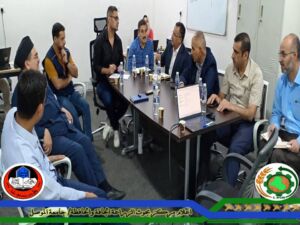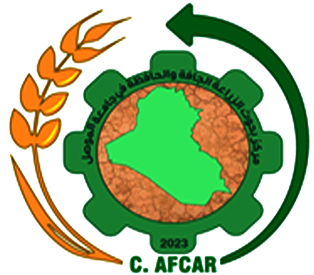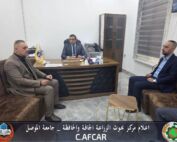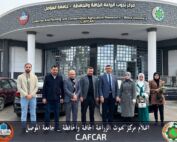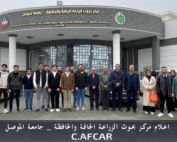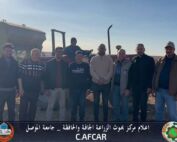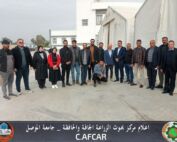22 أكتوبر، 2024
لقاء مع ممثلي برنامج الأغذية العالمي ومديرية زراعة نينوى لمناقشة انطلاق الموسم الجديد لبرنامج الزراعة الحافظة.
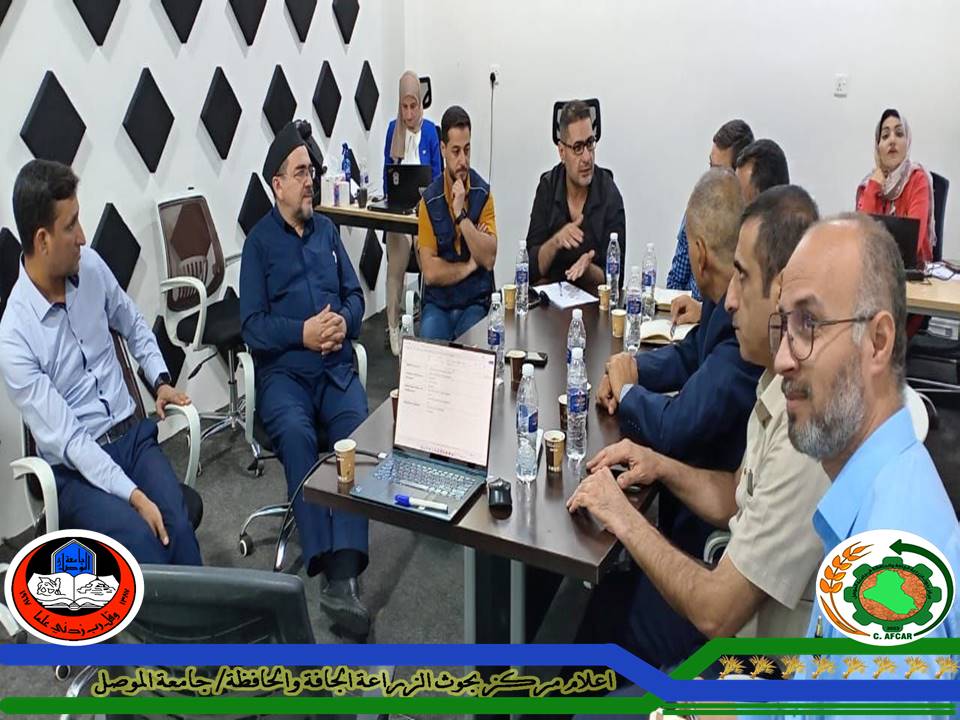
التقى مدير مركز بحوث الزراعة الجافة والحافظة في جامعة الموصل، الاستاذ الدكتور عبد الستار أسمير الرجبو ، ورؤساء الأقسام في المركز مع ممثلي برنامج الأغذية العالمي (WFP) وممثلين عن مديرية زراعة نينوى لمناقشة انطلاق الموسم الجديد لبرنامج الزراعة الحافظة. تم خلال الاجتماع استعراض آليات العمل للموسم الجديد، بالإضافة إلى تحديد عدد الشعب الزراعية والمزارعين الذين سيطبقون تقنيات الزراعة الحافظة في هذا الموسم.
تمحور النقاش حول تعزيز التعاون بين المركز وبرنامج الأغذية العالمي ومديرية زراعة نينوى لتوسيع المشروع على نطاق أوسع في المحافظة بمضاعفة عدد الشعب الزراعية المشمولة هذا الموسم ليصبح 11 شعبة زراعية وبمساحة 1000 هكتار مقارنة بنشاط البرنامج للعام الماضي الذي شمل 5 شعب زراعية و مساحة 560 هكتار ، مما يدلل على ازدياد رغبة المزارعين في تطبيق تقنية الزراعة الحافظة في حقولهم ، كما ناقش المجتمعون سبل تذليل التحديات التي قد تعترض سير العمل لضمان نجاح المشروع وتحقيق اهدافه في زيادة الإنتاج وحماية البيئة بشكل فعّال ومستدام.
The Director of the C.AFCAR at the University of Mosul, Prof Dr. AbdulSattar Alrijabo, along with the heads of departments at the center, met with representatives from the World Food Programme (WFP) and officials from the Directorate of Agriculture in Nineveh to discuss the launch of the new season of the conservation agriculture program.
During the meeting, the work mechanisms for the new season were reviewed, in addition to determining the number of agricultural divisions and farmers who will implement conservation agriculture techniques this season.
The discussion focused on strengthening cooperation between the center, the World Food Programme, and the Directorate of Agriculture in Nineveh to expand the project further in the province by doubling the number of agricultural branches involved this season to 11 branches, covering an area of 1,000 hectares compared to last year’s program, which included 5 agricultural branches and covered 560 hectares.
This increase reflects farmers’ interest in applying conservation agriculture techniques.
The participants also discussed ways to overcome the challenges that might hinder progress to ensure the project’s success and achieve its goals of increasing yields and protecting the environment in an effective and sustainable way.

